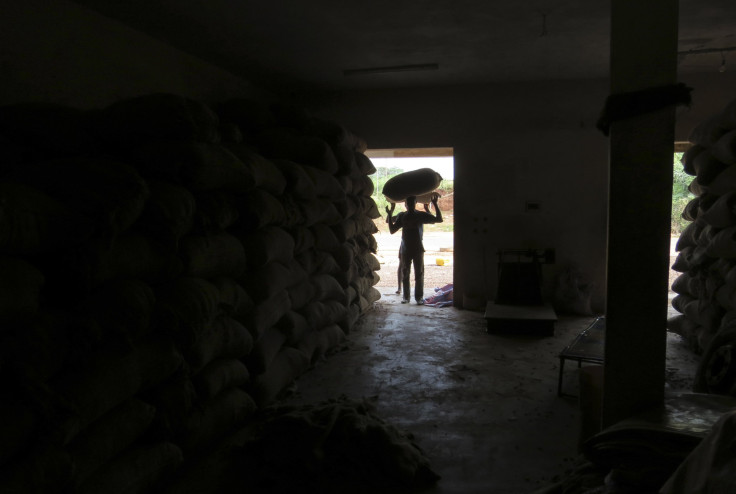Ebola Economic Impact Felt Beyond Affected Countries

The deadliest Ebola outbreak in history has already killed 3,857 people, a rate that health officials say could skyrocket by January, but economists are looking even further into the future. “The economic impacts are already very serious in the core three countries,” World Bank researchers wrote in a Tuesday report, referring to Guinea, Liberia and Sierra Leone. The situation could become “catastrophic” if Ebola is not contained, the report said.
The researchers wrote that if the epidemic spreads into neighboring countries like Nigeria and Senegal, with much larger economies, the costs could reach $32.6 billion by the end of 2015. And even when the disease is successfully controlled, there are economic consequences.
“For our clients, there are a lot of direct and indirect impacts that are already manifesting themselves,” Bruce McIndoe, CEO of iJet, a consultancy that advises multinationals on operating in threat areas, told International Business Times.
Sectors such as agriculture and services are already suffering in Guinea, Sierra Leone and Liberia due to a dwindling workforce, and neighboring markets and international companies operating in the general region are experiencing the secondary effects.
For example, when British Airways cancelled many of its flights to West Africa, it wasn’t just halting tourism.
“It also means cargo and staff can’t get in,” McIndoe said, explaining that many large multinational companies operating in these regions need support to keep operations going. If they can’t get access to supplies for factories or technicians to repair equipment, production will slow.
Nigeria became the continent’s largest economy this year, driven by a growing middle class and service sector. So far, health workers have managed to contain the spread of the virus there, but the country is experiencing some financial fallout.
World Bank data shows a 20 percent to 40 percent decline in commercial demand, likely due to “initial shock, fear and uncertainty following the appearance of Ebola in Lagos and Port Harcourt.” The tourism sector is also suffering.
Though the lucrative oil sector is not likely to be affected as much, since most operations are offshore, the World Bank still revised Nigeria’s GDP growth expectation down from 6.5 percent to 6 percent this year.
Even though Cote D’Ivoire has not yet had any Ebola cases, country officials banned incoming flights from affected countries during the summer. That’s more than a minor inconvenience. The country is one of the biggest cocoa producers in the world, and difficulty getting there has stopped analysts from checking on crops, which dictate cocoa futures, and has hedge funds betting on soaring prices later this year, according to Bloomberg.
Senegal has had only one confirmed case of Ebola, but it, too, faces a challenging economic future.
Senegal has closed its border with Guinea and banned ships from the three affected countries. The tourism industry, which accounts for roughly 12 percent of total exports is the hardest hit, World Bank analysts wrote.
“Several conferences have already been cancelled and incoming flights have relatively few passengers,” the report says, adding that if tourism falls by half, it would lead to a 1 percent drop in GDP.
There's a chance that the most dire financial scenarios won't come true, economists point out, because these countries' worst problems would be caused not by Ebola itself but by secondary, behavioral effects such as a fear of being infected when there is no exposure. Those factors can be mitigated, experts say.
“The behavioral channel is less sensitive to the actual number of cases of Ebola because it is driven by aversion behavior,” they wrote. Employers who know how to protect their staff and governments that can demonstrate they have controlled the epidemic will “inspire confidence in both domestic and international economic agents,” and help business recover.
© Copyright IBTimes 2024. All rights reserved.






















